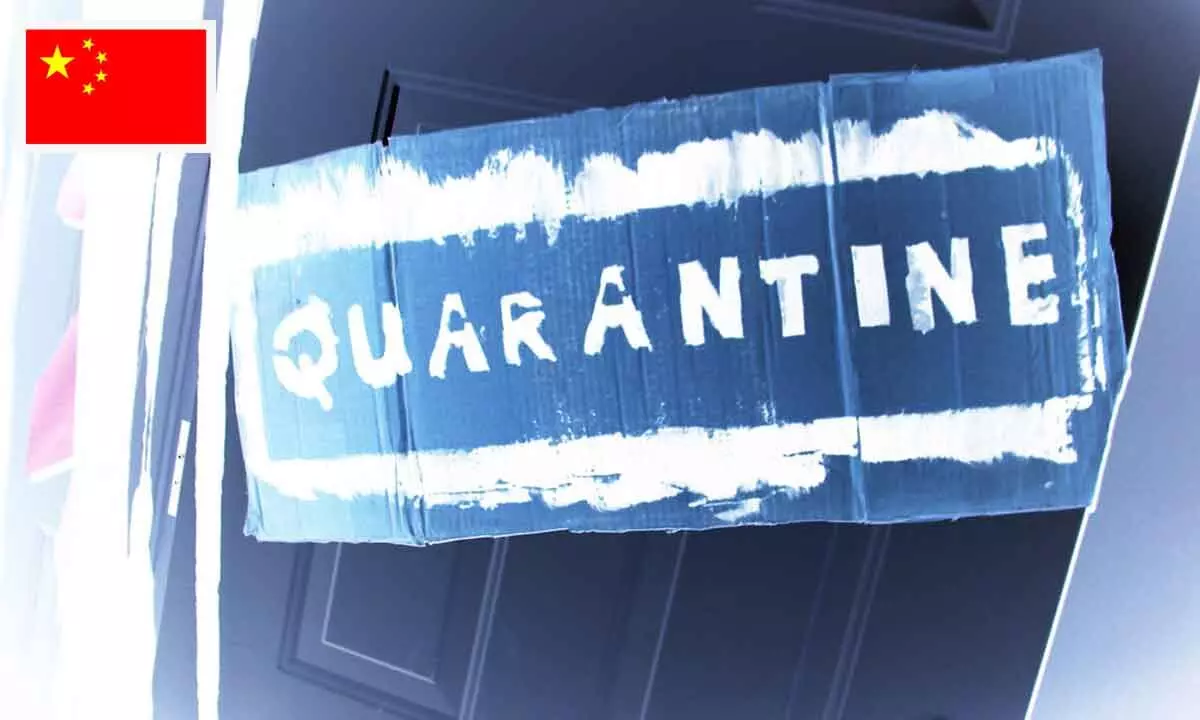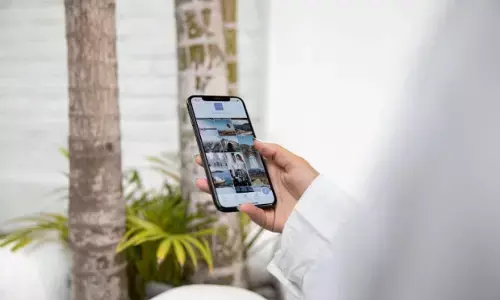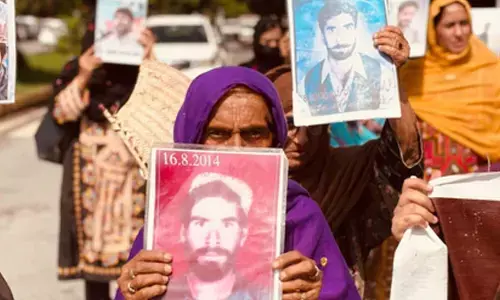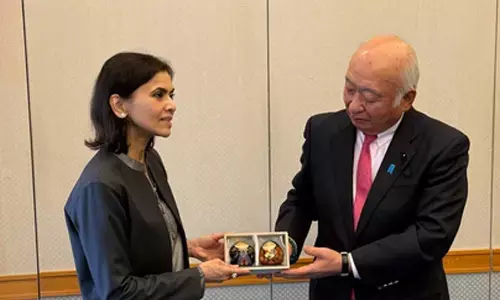China slashes COVID quarantine time for international travellers

The Chinese capital Beijing in recent months has already reduced the quarantine period at centralised facilities to 10 days from 14. China, last month, also removed some COVID-19 test requirements for people flying in from countries such as the United States.
China on Tuesday slashed the quarantine time for inbound travelers by half in a major easing of one of the world's strictest COVID-19 curbs, which have deterred travel in and out of the country since 2020.
Quarantine at centralized facilities has been cut to seven days from 14, and subsequent at-home health monitoring has been reduced to three days from seven, the National Health Commission said. The latest guidelines from the health authority also eased quarantine requirements for close contacts of people who have tested positive for the new coronavirus.
China has cautiously eased its COVID curbs on cross-border travelers in recent months, with health officials saying the shorter incubation period of the Omicron variant allows for an adjustment of quarantine periods. In the Chinese capital, Beijing in recent months has already reduced the quarantine period at centralized facilities to 10 days from 14.
China, last month, also removed some COVID-19 test requirements for people flying in from countries such as the United States. "We believe that today's announcement will be welcomed by the American business community," the American Chamber of Commerce in Shanghai said on its official WeChat account.
The quarantine adjustment will make it easier for companies to bring staff to China, and for Chinese companies and their executives to visit the United States, AmCham said. Stock markets rose in Hong Kong and the mainland, with the Hang Seng Index reversing losses and ticking up roughly 0.4% and the CSI300 Index gaining 0.7%.
Shares in mainland tourism companies jumped more than 5%. China's aviation regulator said this month it had been in touch with some countries to steadily increase the number of flights in the second half of 2022.
IN THE CLEAR Beijing and Shanghai reported on Tuesday no new local COVID infections, the first time both cities were in the clear simultaneously since late February, after months of fighting their worst-ever outbreaks.
The milestone for the two cities, achieved on Monday, came after their daily caseloads dropped to single digits over the past week, allowing Shanghai to gradually resume eating in at restaurants and Beijing to reopen some leisure venues including the Universal Beijing Resort. Shanghai Communist Party chief Li Qiang declared on Saturday that authorities had "won the war to defend Shanghai" against COVID-19.
The Walt Disney Co's Shanghai Disney Resort said on Tuesday that it would reopen the Disneyland theme park on June 30; it had been shut for more than three months. Authorities, however, were adamant the government's so-called dynamic zero COVID policy, which aims at blocking flare-ups from spreading as they crop up, remains in place.
Beijing would "fight against any new outbreaks at the outset and with speed and resolutely break their transmission channel", Cai Qi, the city's top Communist Party chief, was quoted as saying in a report by the party-backed Beijing Daily. Earlier on Monday, the Beijing Daily misquoted Cai as saying the city would maintain its COVID control effort for "the next five years".
The newspaper afterward removed the reference and its chief, Zhao Jingyun, said it was an error but that did not prevent some suspicion among the public. "Surely it wasn't a mistake! It's meant to gauge public opinion!" said a user of the Weibo social media platform.
Another Weibo user said even if it was a mistake, "at least the higher-ups are now aware of how helpless we all feel and how we detest the current counter-epidemic policies".

















